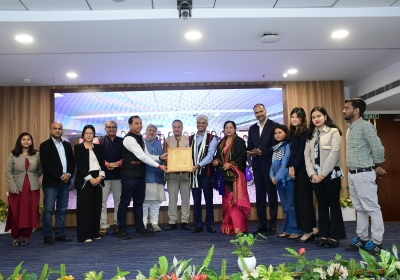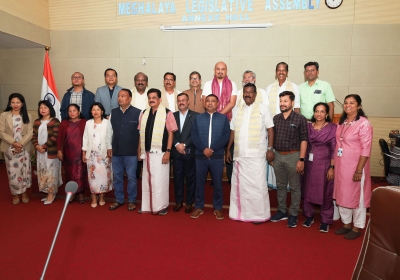Towards Inclusive Ethnic Clan Convergence

Former CEM, KHADC and present Leader of Opposition, Titosstarwell Chynne’s objection to P N Syiem, Deputy Chief Executive Member over the report by the Law Department on the Khasi Hills Autonomous District (Khasi Social Custom of Clan Administration) Bill 2022 during the special session of KHADC held on Friday needs to divulge from the core of the matter.
The bill was returned during the tenure of Bah Titos and the outright rejection of the report of the Law Department could trigger the opening of Pandora's box. He pointed out that the Bill was already endorsed by the Executive Committee in September 2022 and passed by the House, before it was sent to the Governor for assent. He reiterated that the bill had been discussed threadbare and assured, within the purview of the customary law. He was of the opinion that a proper discussion was required before bringing it for discussion in the legislative council.
However, Syiem reminded the house that it was a routine formality to route the Bill through the Law Department, before sending it to the Governor for assent, lest it become easier for him to comprehend the contents of the Bill. Therefore, a committee was set up to sort out the issues pertaining to the report, to be constituted with members from both the treasury and the opposition benches of the Council.
Meanwhile, the assertion of the patriarchal lobby to trace the Khasi clan lineage from the father or a male surname is a fundamental right of every citizen. Whether it is a fact or speculation that the patriarchal lobby was instrumentally pertaining to the report of the Law Department on the Khasi Hills Autonomous District (Khasi Social Custom of Clan Administration) Bill 2022 is yet to be discovered. It was pertinent that during the tenure of Mr. H S Shylla as CEM of KHADC, the members of the patriarchal lobby had led a delegation to Raj Bhavan for opposition to the Bill.
The legal connotation of the preservation of traditional culture and the fundamental rights of citizens needs to be discussed and formulated for a harmonious and concrete promulgation of the law. Perhaps, the consecutive delay in the codification of customary laws since the inception of the Sixth Schedule has severely affected the social customary practices. Further, the undesirable indulgence in the British colonial interpretation of Khasi customary laws is another hindrance to the effective implementation of the relevant customary practices. Meanwhile, the universal patriarchal practices coupled with the influence of certain Christian ideology was deeply rooted in the urban Khasi society. The situation led to the emergence of the Khasi patriarchal movement for several decades, who were concerned about the plight of Khasi society. The patriarchal system in Khasi society was spearheaded by Syngkhong Rympei Thymmai and vociferously advocated by prominent social activists like Michael N Syiem and Ardent Miller Basaiawmoit. Unfortunately, the solutions proposed and formulated are primarily on the material aspects of contemporary society, while the core social problems of the community were never properly addressed.
Therefore, the convergence of the ancient traditions and divergent reforms within the society coexisted and prevailed in consonant with the common tribal ethnic identity. The passion, allegiance, and concern for society by the people following the matrilineal and patriarchal systems within the community remained the foothold of social coexistence. Even a few anglicised versions of ethnic clan affiliation in the Khasi community are dedicated to cumulative social well-being. This is because the foundation of the ancient matrilineal clan system is a dynamic and inclusive practice that has been relevant through the ages. This is manifested in the prevalence of the ‘Dkhar’ clans, which were devoutly consecrated through the ‘Tangjait’ ceremonial tradition embracing authentic Khasi clans. Therefore, the provision of the law should be based on the core of the matrilineal system and endeavour to embrace the community in totality, rather than formulating stringent conditions to divide the community and further devastate the society.







